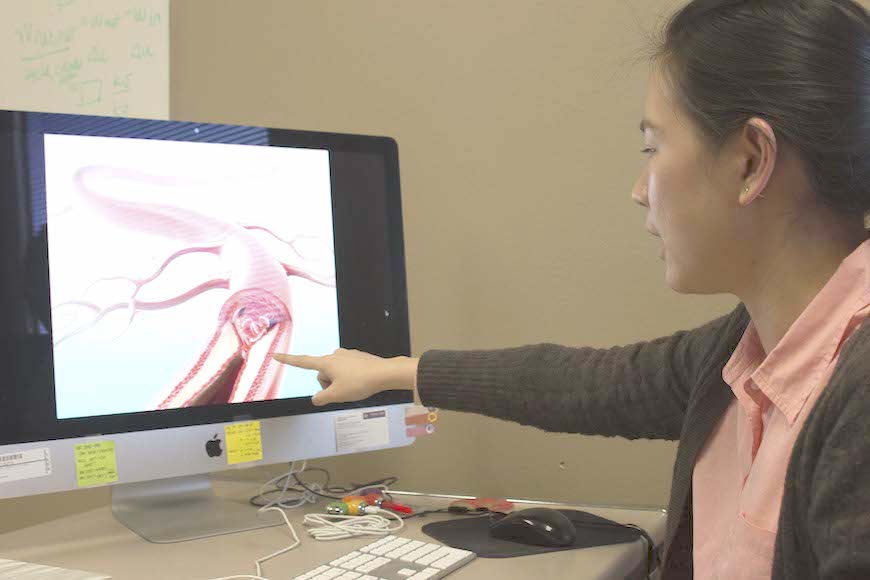 Heart disease is the leading cause of death in the United States. Dr. Ploy Charoenphol, research assistant professor with the Department of Mechanical Engineering at Texas A&M University, is working to help reduce that statistic, and has recently received a grant to aid her in that endeavor.
Heart disease is the leading cause of death in the United States. Dr. Ploy Charoenphol, research assistant professor with the Department of Mechanical Engineering at Texas A&M University, is working to help reduce that statistic, and has recently received a grant to aid her in that endeavor.
“Because of the high risk of death from cardiovascular diseases, there’s a need to improve current diagnosis and treatment,” Charoenphol said.
Charoenphol recently received a scientist development award, a three-year grant for $231,000 from the American Heart Association. Her research will focus on seeking alternative but effective ways to diagnose and treat symptoms that may lead to heart disease and stroke through a project titled, “Engineering a multistage delivery system for intravascular administration of contrast agents in cardiovascular diseases.”
“Our research focuses on developing smart carriers that recognizes plaque buildup in the arteries, an underlying cause of cardiovascular diseases,” Charoenphol said. “The carrier is a modular platform. It can be used to carry drugs for treatment or a contrast agent to aid diagnosis. Because the carrier is designed to specifically target the plaque, the required dosage is minimal.”
There are different kinds of plaque buildup, including stable and unstable. Stable plaque tends to accumulate, narrow the arteries and restrict blood flow. Unstable plaque can rupture, sending pieces through the bloodstream. These small pieces might block blood flow to the heart or the brain, leading to heart disease or stroke.
By having a multistage carrier — one inside the other — the contrast or treatment drug will be able to effectively move through the bloodstream to the site and lodge itself onto a piece of plaque. It then disintegrates, allowing for the second, smaller carrier to move deeper into the plaque.
“Our contrast agent will be able to recognize certain molecules and light them up in images,” Charoenphol said. “This helps doctors identify types and stages of lesions and better predict the risk of cardiovascular diseases.”
With the grant approval, Charoenphol and Dr. Brian Applegate and Dr. Javier Jo, associate professors with the Department of Biomedical Engineering at Texas A&M, are moving forward to develop the multistage carriers and evaluate their performance.